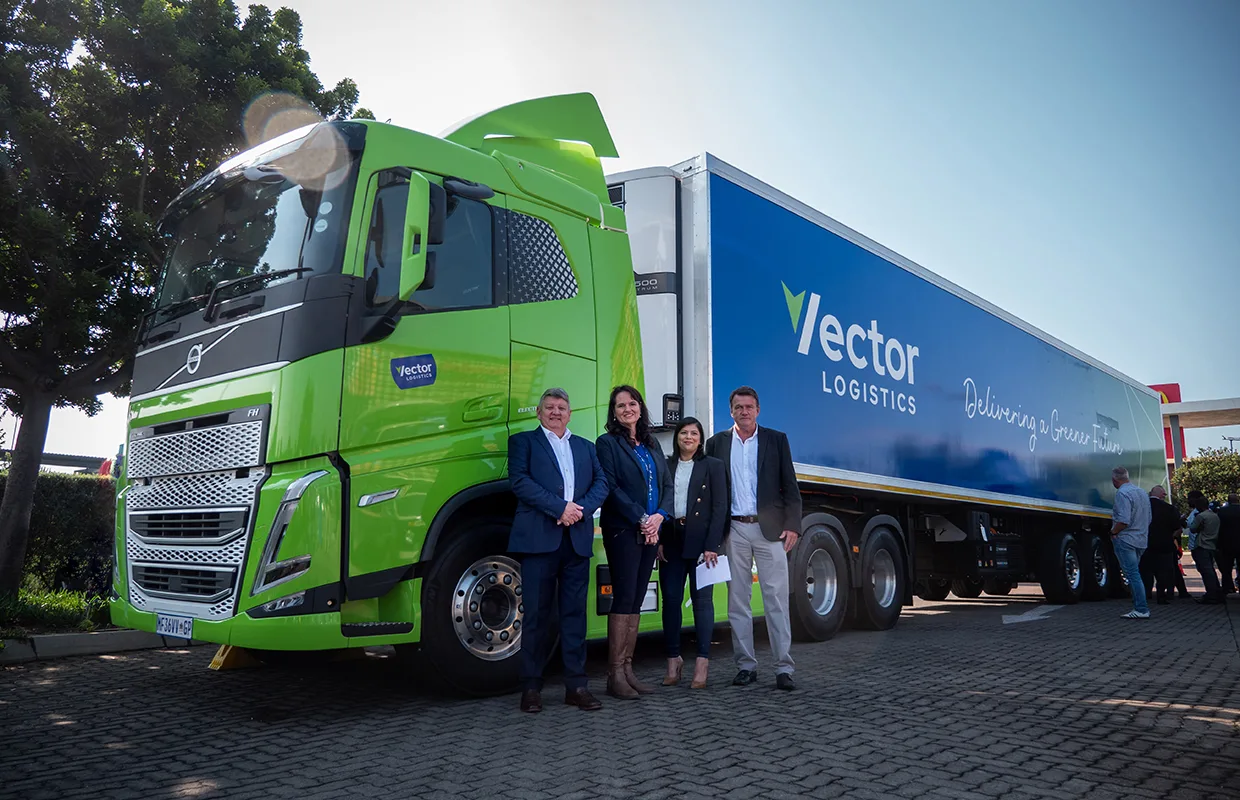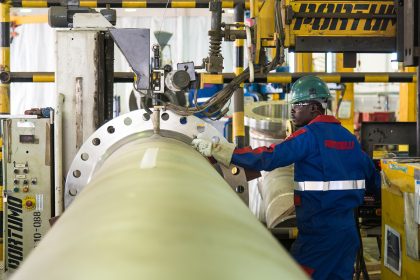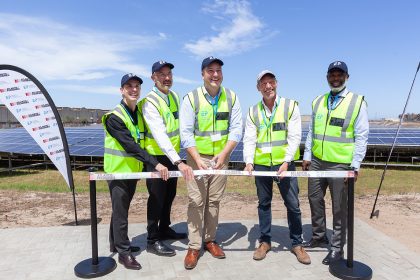As the competitive advantages afforded by carbon neutrality in South Africa’s logistics landscape continue to emerge, the freight industry is leveraging more and more innovative solutions. Annelie Govender, Chief Human Resources Officer and ESG Lead at prominent integrated cold chain logistics provider, Vector Logistics, outlines how the company is doing just this.
SHIFTING GEARS IN SUSTAINABILITY
In an increasingly interconnected and environmentally conscious world, carbon neutrality has emerged as more than just a moral imperative – it is now considered a competitive advantage.
This is particularly true for the freight industry in South Africa (SA). Investors and stakeholders are placing significant emphasis on environmental, social, and governance (ESG) principles, with carbon neutrality acting as a litmus test for companies’ commitment to long-term sustainability and profitability.
The freight sector, a backbone of SA’s economy, is under intense scrutiny to align with global best practices in sustainability – not merely as a compliance exercise, but as a driver of innovation and growth.
Despite this clear direction, ESG and sustainability principles have faced their fair share of criticism, both locally and globally.
Some argue that ESG initiatives impose additional financial burdens on companies already struggling in a tough economic climate, whilst others question the tangible outcomes of sustainability strategies, dismissing them as mere box-ticking exercises.
Although these criticisms are not entirely unfounded, they overlook the transformative potential of ESG and carbon neutrality commitments.
Companies that embrace these principles are not only futureproofing their operations but also positioning themselves to attract investment and unlock new revenue streams.
As such, SA’s leading integrated cold chain logistics provider, Vector Logistics (Vector), is shifting gears in sustainability with the launch of its first fully electric net zero vehicles.
This roll-out marks a significant milestone in the company’s journey towards net zero, which it aims to achieve by 2050.
Having remained steadfastly committed to its ESG and carbon neutrality strategies, even in the face of pushback, Vector’s commitment is not about optics – it’s about seizing the opportunities that come with being a sustainability leader in the freight sector.
The company anticipates rolling out its first fully electric bumper-to-bumper trucks as part of its fleet on South African roads later this year.
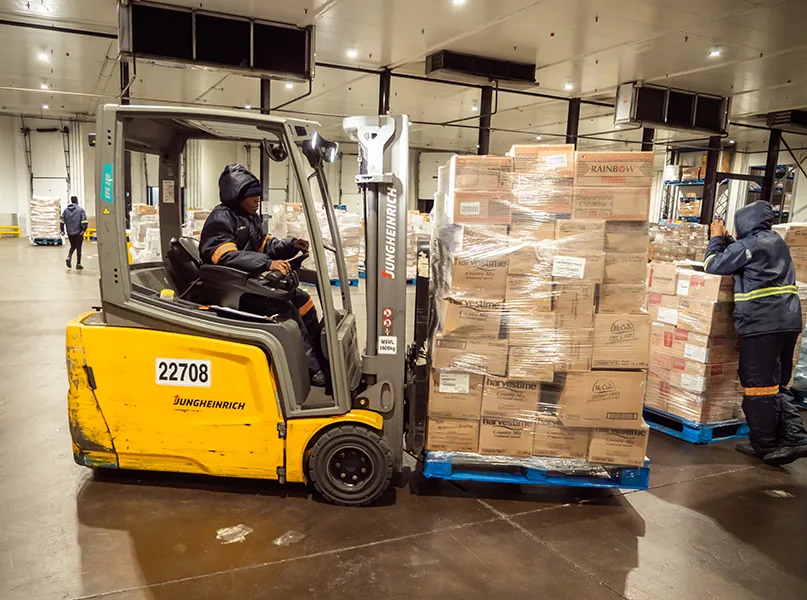
RESPONDING TO THE CLIMATE EMERGENCY
As sustainability remains at the heart of Vector’s business strategy, the company is committed to creating an agile, resilient logistics network that adapts to market changes whilst maintaining service quality.
The latest climate science research confirms that the world must move from 51 billion tonnes of greenhouse gas (GHG) emissions to net zero by 2050 to prevent global warming above 1.5 degrees Celsius (°C).
Vector’s goal is to respond to the current climate emergency by reducing its GHG emissions by at least 42 percent before the end of 2030. To do this, it needs to embrace technology and innovation to prove that the freight and logistics sectors are at the forefront of these developments.
The global shipping industry, for instance, provides a compelling example of how innovation can drive progress. The world’s first carbon-neutral ship was launched this year and demonstrates how industry leaders are exploring ground-breaking solutions to decarbonise their operations.
Whilst the reliance on alternative fuels such as methanol has its criticisms, the project underscores the importance of taking bold steps towards sustainability.
These kinds of innovations represent a step change in how the logistics sector is approaching decarbonisation, and reinforces its dedication to developing value-driven, environmentally conscious operations.
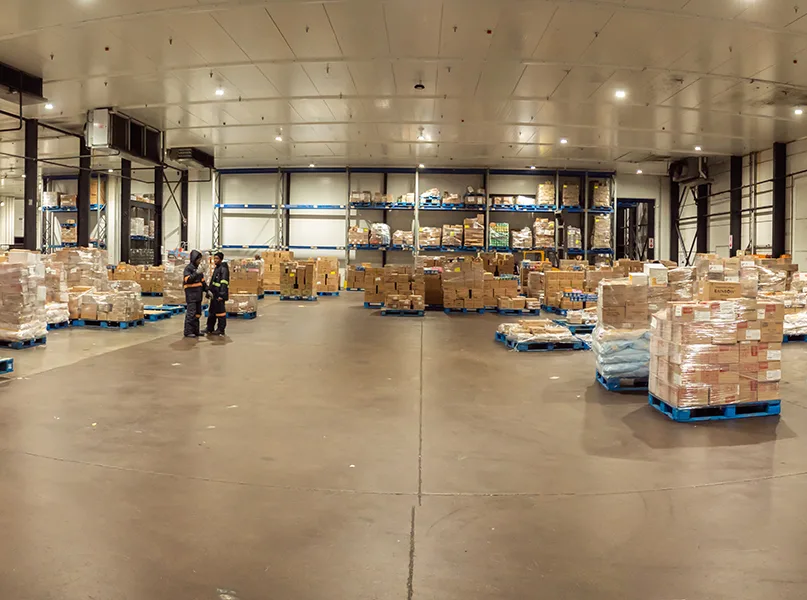
A TRAILBLAZING SOLUTION
Closer to home, SA’s road freight sector is also seeing significant strides in innovation.
According to the International Road Transport Union (IRU), a duplex approach to greening road transport is gaining traction. This strategy combines the use of cleaner fuels and advanced vehicle technologies with systemic changes such as optimised logistics and infrastructure upgrades.
These developments are particularly relevant for SA, where the freight industry’s carbon footprint is a growing concern.
However, as highlighted by McKinsey’s research on decarbonising logistics, many organisations still grapple with how to implement effective sustainability strategies.
This knowledge gap presents an opportunity for innovators to step in and provide solutions. For instance, third-party providers with expertise in green logistics can help companies design and execute tailored decarbonisation plans.
These collaborations can bridge the gap between ambition and action, ensuring that South African freight companies remain competitive on the global stage.
Vector’s trailblazing solution goes beyond convention by pairing Volvo battery electric vehicle (BEV) truck tractors with innovative solar-powered e-axle trailers, creating SA’s first fully electric bumper-to-bumper logistics system.
Unlike traditional electric trucks that focus solely on the vehicle’s powertrain, this solution integrates solar-powered e-axle trailers.
However, there are no solar panels on the truck or trailer itself; instead, both the truck and trailer batteries are charged at solar-powered charging stations at Vector’s distribution centres.
Whilst the trucks are in motion, the e-axle generates kinetic energy as the wheels turn, which helps charge the batteries.
For added resilience, the refrigeration system also includes a diesel back-up, intended solely for emergency use to ensure operational continuity for extended pre-cooling at depots when the solar battery power is depleted.
These net zero vehicles will support deliveries across Johannesburg and Cape Town, aligning with the sustainability goals of Vector’s clients whilst reinforcing its commitment to collaboration in achieving shared environmental objectives.
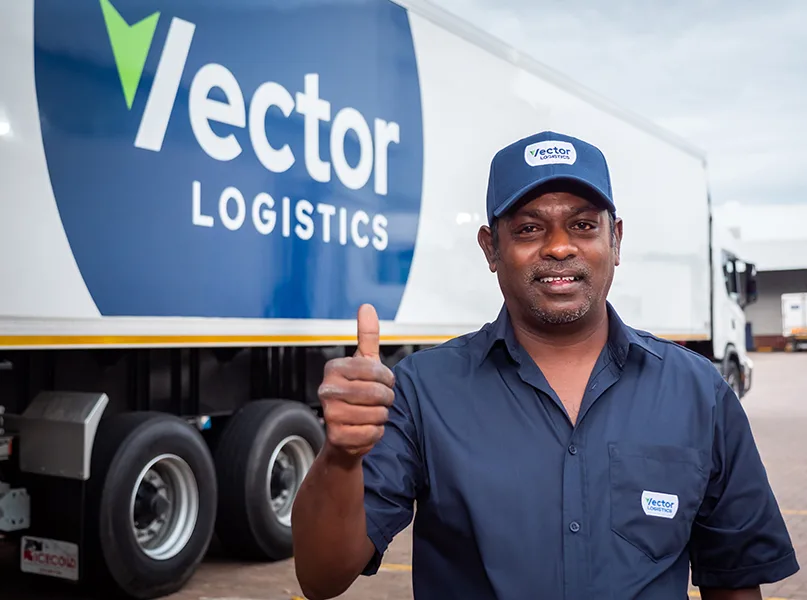
DRIVING SUSTAINABILITY FORWARDS
As part of its ambitious ESG strategy, Vector’s roll-out of net zero trucks aligns with its overarching goal of embedding sustainability into everything it does.
From electrifying its fleet to adopting renewable energy solutions and championing sustainable practices across the value chain, the company’s actionable approach to sustainability is notable.
The launch of its net zero fleet showcases Vector’s commitment to making a tangible, positive impact on both its environment and the communities it serves.
It is also equipping staff with best-in-class equipment and empowering them with the knowledge and skills needed to drive the company’s sustainability agenda.
Key features of Vector’s sustainability roadmap going forwards include transitioning to electric vehicles (EVs), such as the new BEVs and e-axle trailers, and expanding solar photovoltaic (PV) installations at its facilities to reduce reliance on the grid.
Furthermore, it is also delivering baseline sustainability training to 100 percent of its workforce.
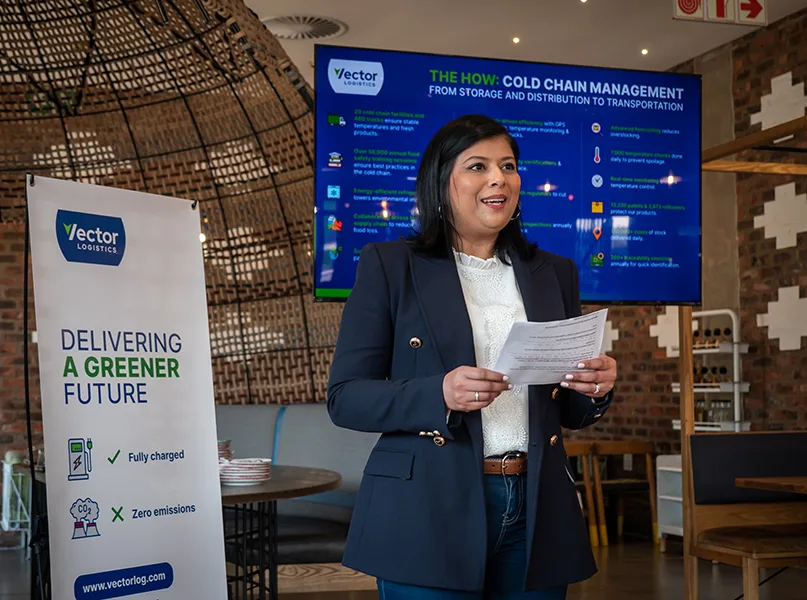
AT THE FOREFRONT OF CLEAN ENERGY
For Vector, the push towards carbon neutrality is not just a local or regional trend – it is a global movement driven by stakeholders across the value chain.
European shareholders, in particular, have been vocal in their demands for best practices in sustainability. Their influence extends beyond mere compliance requirements as they shape the strategic priorities of companies operating in emerging markets such as SA.
These shareholders understand that carbon neutrality is not only an environmental imperative but also a key driver of risk management and value creation, with the latter also extending to internal stakeholders.
Vector’s staff, for example, have rapidly embraced this new future, and the company has been particularly encouraged by their response.
Employees recognise that being involved in such developments can be a competitive advantage as they can be at the forefront of a clean energy transition.
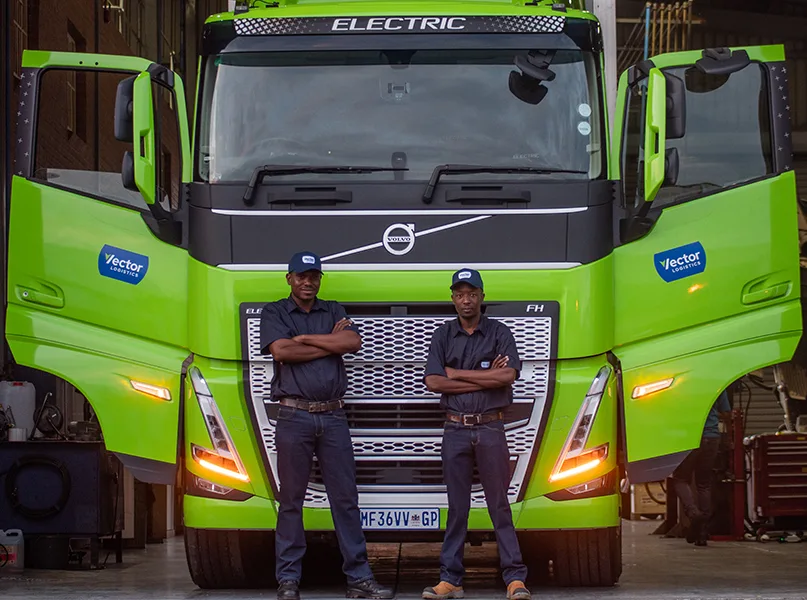
THE FUTURE OF LOGISTICS IN SA
By adopting green technologies and forming strategic partnerships with stakeholders, Vector is shaping the future of SA’s logistics industry.
The introduction of fully electric trucks not only reduces GHG and carbon emissions but also positions the company as a pioneer in sustainable logistics solutions.
Vector’s net zero trucks are a testament to the company’s vision of doing well whilst doing good.
As these vehicles hit the road, they pave the way for a more sustainable future, inspiring others in the industry to follow suit – delivering excellence whilst minimising environmental impact.
To remain competitive and continue to contribute meaningfully to the planet, Vector recognises it must lead with innovation and that its investments in EVs and renewable energy represent the future of logistics in SA.
It’s clear, therefore, that the road transport sector in SA is uniquely positioned to lead the charge towards a more sustainable future.
With a vast network of logistics providers at its disposal, alongside robust infrastructure and strategic importance in regional trade, the industry is ripe for innovation.
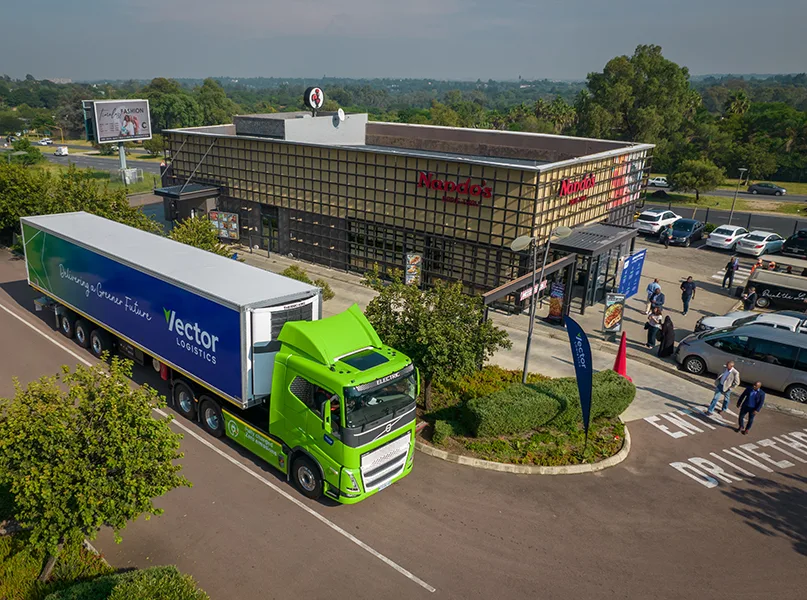
From adopting cleaner fuels to leveraging digital technologies for optimised route planning, the possibilities are endless.
By embracing these opportunities, SA’s freight companies can enter an exciting new phase of growth that aligns profitability with purpose.
In conclusion, the journey to net zero is not without its challenges, but the rewards far outweigh the costs.
Achieving carbon neutrality is not just a competitive advantage – it lays the foundation for a sustainable and resilient logistics industry.
For SA’s freight sector, the path forwards is clear – innovate, collaborate, and lead. By doing so, the sector will not only meet the expectations of investors and stakeholders but also contribute meaningfully to the global fight against climate change.



